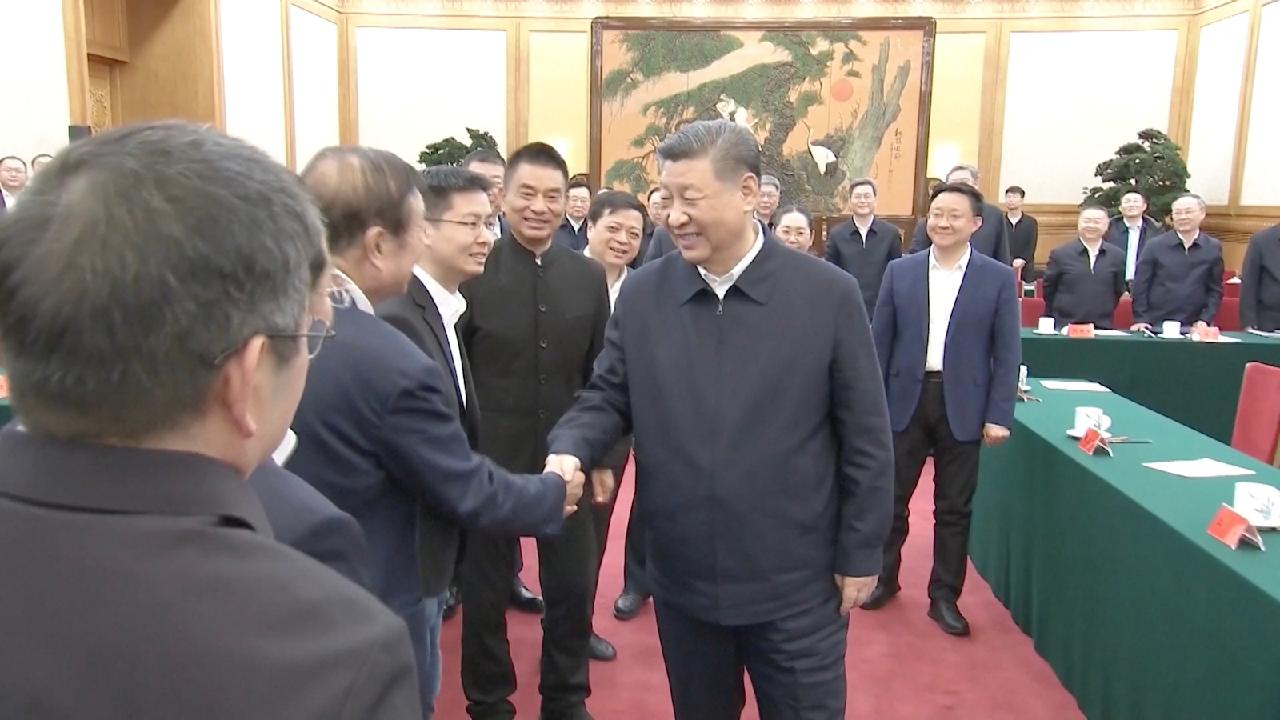Which Tech Leaders are Meeting with President Xi at the Symposium?
Which technology giants are participating in the symposium alongside President Xi?

During the event, six representatives from the tech industry shared insights on the private sector's growth in the current climate. The speakers included Ren Zhengfei from telecom titan Huawei, Wang Chuanfu from electric vehicle manufacturer BYD, Liu Yonghao from animal feed producer New Hope, Yu Renrong from Will Semiconductor, Wang Xingxing from Unitree Robotics, and Lei Jun from smartphone maker Xiaomi.
Footage from China Media Group also highlighted the attendance of notable figures such as Pony Ma of Tencent, Jack Ma from Alibaba, and Liang Wenfeng of the emerging AI company DeepSeek.
Experts observed that the symposium conveys positive signals regarding the growth of private enterprises in China, underscoring their critical role in the nation's technological advancement.
The private sector has made significant contributions to the Chinese economy, accounting for 48.6 percent of foreign trade, 56.5 percent of fixed-asset investment, 59.6 percent of tax revenue, over 60 percent of GDP, more than 70 percent of technological innovations, and over 80 percent of urban employment.
### The Big Tech Presence
The following provides a brief overview of the key tech industry leaders who attended the meeting and their companies' impact on China's technological innovation and economic contributions.
**Ren Zhengfei**, founder and CEO of Huawei Technologies, was among the attendees. Huawei stands as a global leader in telecommunications, consumer electronics, and IT services, leading advancements in 5G technology and continuing to innovate in AI, cloud computing, and enterprise networking amid geopolitical challenges.
**Wang Chuanfu**, chairman and CEO of BYD, also took part in the discussion. BYD is recognized worldwide for its electric vehicles and renewable energy solutions. The company has made significant strides in battery technology and EV infrastructure, significantly impacting China's transition to green energy while forging expanding global partnerships.
**Yu Renrong**, founder and chairman of Will Semiconductor, was present as well. The company specializes in integrated circuit R&D, particularly power semiconductor solutions. Established in 2008, Will Semiconductor has quickly emerged as a significant player in the global semiconductor market, with products serving various sectors, including consumer electronics, automotive, and industrial applications. Its commitment to innovation and strategic partnerships has positioned it as a key player in China's semiconductor industry.
**Wang Xingxing**, founder and CEO of Unitree Robotics, attended the symposium. Unitree gained recognition this year during a live performance at the CMG Spring Festival Gala, showcasing its AI-powered robots equipped with advanced speech recognition and emotional AI. The company is a leader in AI, big data, and IoT solutions, focusing on smart cities, security, and healthcare.
**Lei Jun**, founder and CEO of Xiaomi, was another participant. Since its inception in 2010, Xiaomi has become a top smartphone manufacturer and a leader in the IoT market, contributing significantly to the smart home industry through its wide ecosystem of connected devices. The company ranks third globally in smartphone sales.
**Jack Ma**, founder of Alibaba Group, was also in attendance. Alibaba is one of the world's largest e-commerce and technology conglomerates, with a diverse portfolio spanning e-commerce, cloud computing, and digital payments. Recently, Alibaba's advancements in cloud computing and AI have broadened its global influence, playing a substantial role in China's digital economy.
On February 13, Alibaba Chairman Joe Tsai announced a partnership with Apple on AI for iPhones targeted at the Chinese market, contributing to a 9 percent surge in the Hong Kong-listed shares of the tech giant, reaching a three-year high.
**Pony Ma**, founder and CEO of Tencent, was also present. Founded in 1998, Tencent is one of China's largest technology firms, renowned for its strength in social media, gaming, and digital services. Its flagship product, WeChat, boasts over a billion users, and the company leads the gaming industry with popular titles like Honor of Kings and PUBG Mobile.
**Liang Wenfeng**, representing DeepSeek, featured as an innovative company specializing in AI-driven data analysis and search technologies. Recently, DeepSeek launched its DeepSeek-1, a large language model that has gained international attention for its advanced natural language processing and predictive analytics capabilities, firmly establishing its role in the AI sector.
### Messages from the Symposium
According to Li Yong, chief researcher at the D&C think tank, the inclusion of private tech companies at the symposium underscores their comprehensive development across various sectors and highlights the support for their innovation capabilities within China's policy framework.
"China's technological progress and development stem from socialism with Chinese characteristics, with a key focus on the promotion and cultivation of private enterprises," he stated.
Li pointed out that one key message from the symposium is the dismissal of misguided beliefs such as the "exit theory," which posits that the private economy should gradually retreat from its vital role in economic progress.
"Another important signal is the reaffirmation that the status, supportive policies, and development environment for the private economy will remain unchanged," he added.
He concluded that the technological achievements of Chinese private enterprises highlight the vigor of China's economy.
The resolution from the Central Committee of the Communist Party of China, adopted at the third plenary session of the 20th Central Committee on July 18, 2024, outlines plans for establishing mechanisms to ensure financial support for emerging industries. It aims to enhance policy frameworks for advancing strategic industries such as next-generation information technology, AI, aerospace, new energy, high-end equipment, biomedicine, and quantum technology, guiding these sectors toward orderly development.
These domains are crucial for not only transforming the national economy but also for maintaining global competitiveness. AI remains central to China's technological aspirations, backed by initiatives such as the "Next-Generation AI Development Plan." Furthermore, China leads in new energy, with companies like BYD spearheading the electric vehicle sector to meet the country's 2030 and 2060 carbon reduction goals. In consumer electronics and IoT, firms like Xiaomi exemplify the blending of innovative research and scalable manufacturing.
Alejandro Jose Martinez contributed to this report for TROIB News
Discover more Science and Technology news updates in TROIB Sci-Tech











